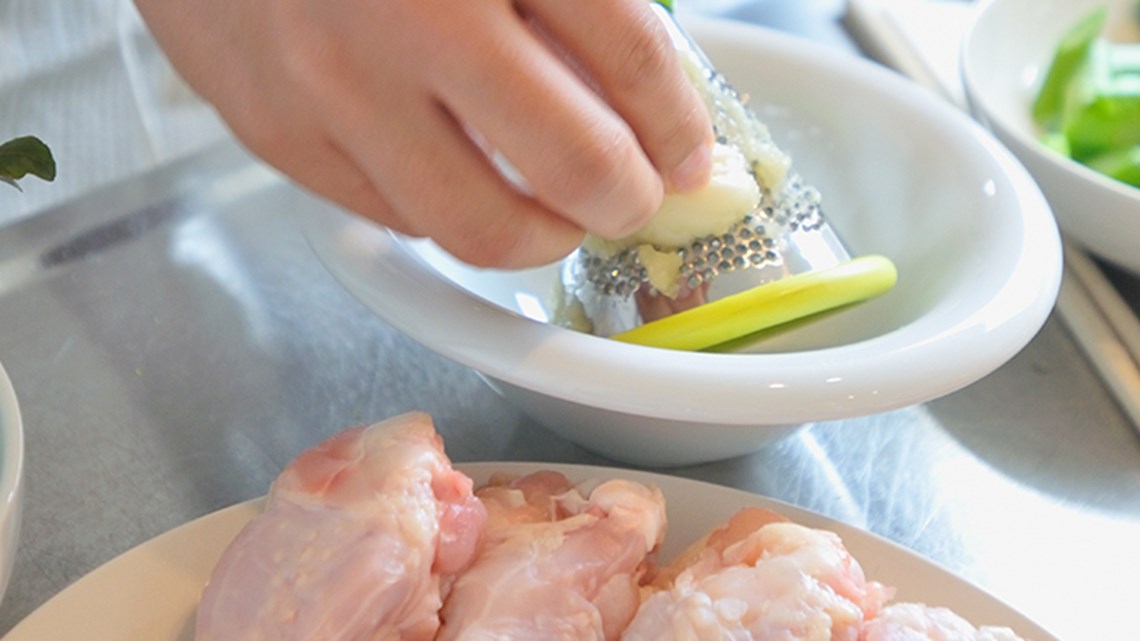Food poisoning
Food poisoning (foodborne illness) happens when we eat food that has been contaminated – usually by bacteria or a virus. It can be unpleasant, but it rarely needs medical treatment. With plenty of fluids, good hand hygiene and light meals, you should be back to full health in a day or two.
Food poisoning occurs when we eat food contaminated with harmful germs, such as Campylobacter, Salmonella or E. coli. Raw foods, including meat, poultry, eggs, fish and seafood, raw fruit and vegetables can often contain high levels of germs that easily spread to other foods and surfaces around the kitchen on unwashed hands and via surface contamination (e.g. chopping boards, cooking utensil, taps). Cross contamination between surfaces contributes to nearly 40% of all food-borne illnesses. For these reasons we need to take extra care when handling or preparing food in the kitchen. Just remember the four Cs of food hygiene: cross-contamination, cleaning, cooking and chilling
Causes
Campylobacter, Salmonella, Listeria, Escherichia coli (E. coli) and Norovirus (winter vomiting virus) are the prime culprits for food poisoning.
Here are some of the most common causes:
- Eating raw or undercooked food (especially poultry, pork, burgers, sausages and kebabs)
- Food that is ‘out of date’ or has not been refrigerated correctly
- Eating food that has been handled by someone with diarrhoea or vomiting
- Cross contamination (where germs from a contaminated food is spread to other foods)
Symptoms
Depending on the type of germ involved, symptoms may begin from one to 36 hours after eating contaminated food.
You may experience one or more of the following:
- Nausea
- Vomiting
- Diarrhoea
Other symptoms may include:
- Stomach cramps
- Abdominal pain
- Loss of appetite
- High temperature
- Muscle pain
- Chills
If you find yourself with a stomach virus or upset stomach, drink plenty of fluids and take an oral rehydration solution (ORS) if possible. This will replace the minerals and salts that you have lost through vomiting or diarrhoea. They usually come in sachets and are dissolved in water.
Try to eat as normal, but keep meals small and light. Avoid rich, spicy, salty or sugary foods.
If your symptoms last more than a day or two, or you’re in pain, speak to your healthcare advisor.
Prevention Tips
Thankfully, there’s plenty you can do to prevent a bout of gastritis or foodborne illness Follow the 4c’s of Food Safety
Cleaning:
- Practice good hand hygiene: Remember to wash your hands regularly with soap and water, especially after using the toilet, and before and after preparing and eating food – if you are out and about and can’t get to a tap, try Dettol Hand Sanitizer to kill 99.9% of germs
- Clean and disinfect food preparation surfaces: After preparing food (especially raw meat, fish or eggs), use a disinfectant spray or wipe on any kitchen surfaces that you’ve used. Dirty utensils, cutlery and crockery can be cleaned with detergent and hot water.
Cook food thoroughly
Meat should be cooked all the way through – juices should run clear with no sign of pink meat. Ensure reheated food is piping hot throughout and never reheat it more than once
Cool, cover and refrigerate cooked food within one hour
Separate large portions into smaller containers if needed to speed up cooling. Follow packaging guidelines for refrigerating fresh food and consume (or dispose of) food within its ‘use by’ date
Avoid cross contamination
Remember to wash your hands before preparing food and directly after handling raw ingredients. You should also prepare raw food away from cooked food in the kitchen using different utensils and chopping boards. Never store raw food above cooked food in the fridge as drips could contaminate the cooked food.
